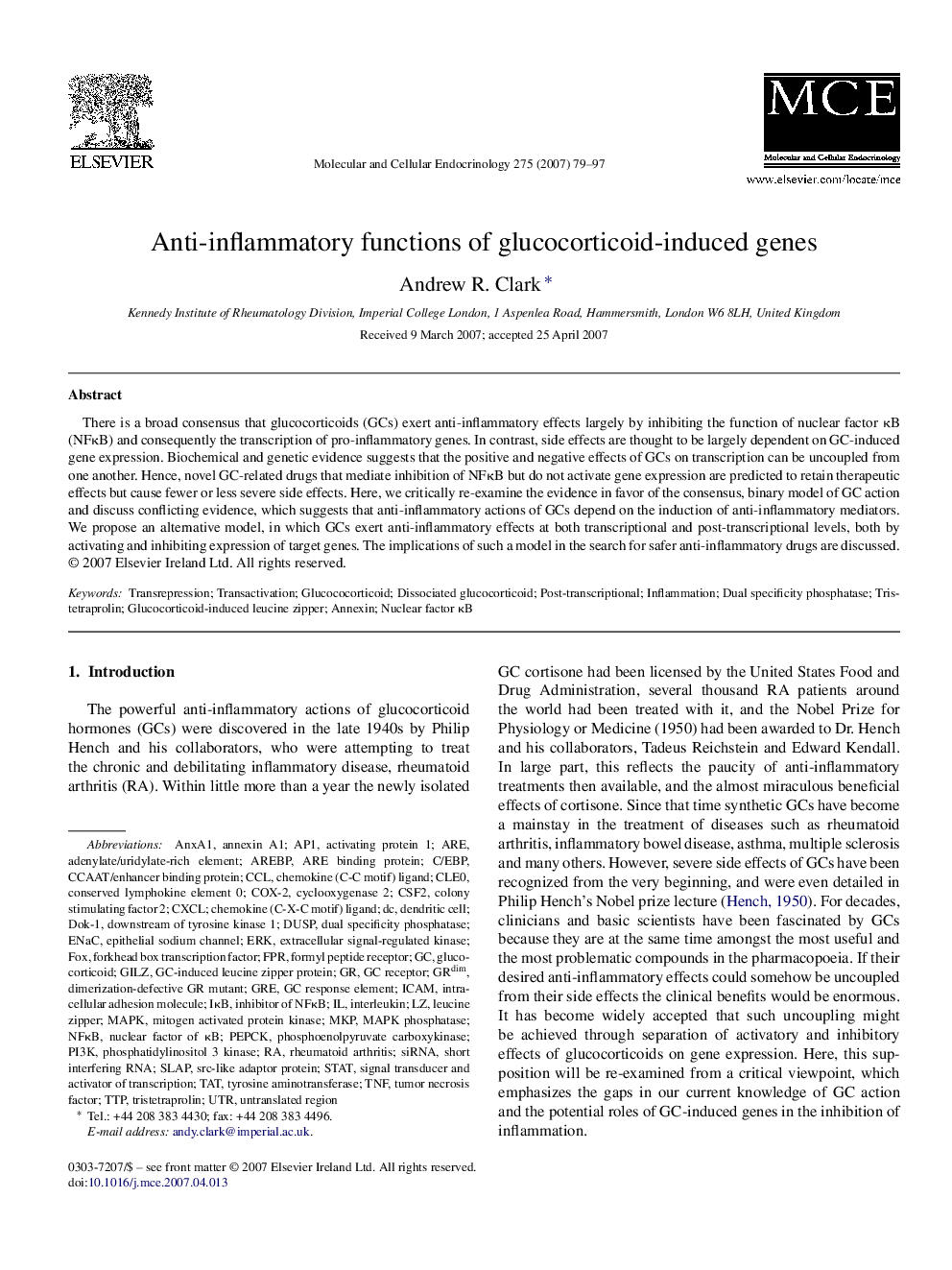| Article ID | Journal | Published Year | Pages | File Type |
|---|---|---|---|---|
| 2197833 | Molecular and Cellular Endocrinology | 2007 | 19 Pages |
There is a broad consensus that glucocorticoids (GCs) exert anti-inflammatory effects largely by inhibiting the function of nuclear factor κB (NFκB) and consequently the transcription of pro-inflammatory genes. In contrast, side effects are thought to be largely dependent on GC-induced gene expression. Biochemical and genetic evidence suggests that the positive and negative effects of GCs on transcription can be uncoupled from one another. Hence, novel GC-related drugs that mediate inhibition of NFκB but do not activate gene expression are predicted to retain therapeutic effects but cause fewer or less severe side effects. Here, we critically re-examine the evidence in favor of the consensus, binary model of GC action and discuss conflicting evidence, which suggests that anti-inflammatory actions of GCs depend on the induction of anti-inflammatory mediators. We propose an alternative model, in which GCs exert anti-inflammatory effects at both transcriptional and post-transcriptional levels, both by activating and inhibiting expression of target genes. The implications of such a model in the search for safer anti-inflammatory drugs are discussed.
